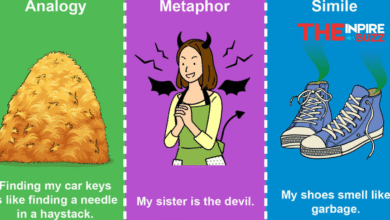Detailed Synonym Understanding the Depth of Language

Language is one of the most powerful tools we use every day, and one of its most fascinating aspects is how words can be stretched, shaped, and swapped without losing their essence. That’s where the idea of a detailed synonym comes in. A synonym is more than just a word that “means the same thing.” A detailed synonym, when used thoughtfully, can bring new shades of meaning, enhance clarity, or add personality to the way you write or speak.
In everyday communication, we often rely on familiar vocabulary, but that can sometimes make our writing feel flat or repetitive. Taking the time to explore synonyms—and not just any synonyms, but ones that are specific, precise, and full of character—can completely transform the way you express yourself. This is why understanding detailed synonym usage is essential for anyone who wants to be more engaging, persuasive, or creative with their language.
The Power of a Detailed Synonym in Communication
When you think of synonyms, you might picture a quick swap, like replacing “happy” with “joyful.” But a detailed synonym goes further than that. It’s about choosing a word that doesn’t just match the meaning, but also captures the exact tone and nuance you’re aiming for. For instance, “happy” can mean many things—elated, content, ecstatic, or even relieved. Each synonym adds a layer of precision, giving your message more texture and depth.
In professional settings, this careful choice of words can make a huge difference. Whether you’re drafting an email, writing a report, or giving a presentation, your audience responds better to clear, precise language. By using a detailed synonym, you show that you’re not only articulate but also attentive to how your message lands. That subtle shift in word choice can make your communication sound polished and confident.
How a Detailed Synonym Improves Writing Style
Writers often search for ways to avoid monotony in their work. Nothing slows down a reader faster than encountering the same word over and over again. This is where the magic of a detailed synonym comes in. By rotating in well-chosen alternatives, your sentences feel fresh and your style develops a natural rhythm that keeps readers engaged.
For creative writers, the choice of synonym can even set the mood of a scene. Imagine a character described as “slim” versus “gaunt.” Both words suggest thinness, but the latter carries a darker, more unsettling undertone. That’s the power of detail: it allows you to color your writing with precision, creating a stronger emotional connection with the reader.
Exploring the Layers of Synonyms
Not all synonyms are created equal. Some are near-perfect substitutes, while others carry subtle connotations that shift the meaning slightly. A detailed synonym acknowledges these layers and helps you pick the one that fits best. This level of awareness separates strong communicators from average ones because it shows an ability to recognize and leverage nuance.
Take the word “important,” for example. Alternatives like “crucial,” “essential,” “vital,” and “significant” each emphasize a slightly different aspect of importance. If you’re trying to highlight urgency, “crucial” is your word. If you want to stress necessity, “essential” does the job. The art lies in making that distinction deliberately.
The Role of Context in Choosing Synonyms
Context is everything when it comes to using a detailed synonym. A word might fit perfectly in one situation but sound awkward or out of place in another. For instance, calling a dinner “vital” makes less sense than describing it as “delicious” or “memorable.” That’s why good writers don’t just memorize lists of synonyms—they understand how to use them in context.
This skill becomes even more important in cross-cultural communication. Words often carry cultural undertones that aren’t obvious at first glance. By being careful with synonyms and ensuring they suit the audience and occasion, you avoid miscommunication and make your message more relatable.
Practical Ways to Use Detailed Synonyms
One of the simplest strategies to improve your language is to build a personal bank of detailed synonyms. This doesn’t mean memorizing a thesaurus. Instead, it’s about noticing which words resonate with your voice and how they shift meaning in different situations. Keeping a journal of these words can help you expand your vocabulary naturally over time.
Another practical approach is editing your own work with synonyms in mind. After writing a draft, read through and notice words that feel repetitive or vague. Then ask yourself: is there a detailed synonym that would make this clearer, more vivid, or more precise? This small adjustment often makes a big difference in how engaging your writing feels.
Why Writers Should Value Word Precision
When writers choose words carefully, they show respect for their readers. Using a detailed synonym demonstrates thoughtfulness and effort, which can build trust and keep an audience invested. Readers can sense when writing feels lazy or repetitive, and they can just as easily recognize when it’s deliberate and carefully crafted.
Precision also strengthens persuasion. If you’re trying to make a point—whether in marketing, education, or everyday conversation—choosing the right synonym can highlight your argument in a way that resonates more deeply. Words are subtle tools, but when sharpened, they’re incredibly powerful.
Common Mistakes to Avoid with Synonyms
While detailed synonyms are invaluable, they can be misused if not handled carefully. One common mistake is forcing a synonym into a sentence where it doesn’t naturally belong. Just because a word appears in the thesaurus as an alternative doesn’t mean it’s the right fit for your tone, audience, or purpose.
Another pitfall is overuse. Swapping in too many synonyms can make writing sound unnatural or confusing, as though you’re trying too hard to impress. The best approach is balance—enough variation to keep the text engaging, but not so much that it distracts from the core message.
The Evolution of Language and Synonyms
Language is never static; it’s constantly evolving. A detailed synonym today might not have carried the same connotation centuries ago, and it may shift again in the future. This fluidity is part of what makes language both challenging and fascinating to study.
Writers and speakers who stay curious about these shifts are able to adapt and keep their communication relevant. Paying attention to how synonyms evolve can also help avoid outdated or insensitive language, keeping your expression fresh and inclusive.
FAQs About Detailed Synonyms
What makes a synonym “detailed”?
A detailed synonym isn’t just a word that shares meaning—it’s one that captures nuance, tone, or context with precision. It helps express exactly what you intend, rather than offering a broad or vague alternative.
Are detailed synonyms only useful for writers?
Not at all. Anyone who communicates—whether in business, teaching, or daily conversation—benefits from choosing words more carefully. A detailed synonym can make explanations clearer, arguments stronger, and conversations more engaging.
How can I find the right synonym without overthinking?
The best method is practice. Read widely, pay attention to how different authors use words, and test alternatives in your own writing. Over time, you’ll develop an instinct for which synonym works best in each context.
Is it possible to use too many synonyms?
Yes. While variety is good, overloading your text with synonyms can feel forced or distracting. Aim for balance—use synonyms to add precision and rhythm, but always prioritize clarity.




